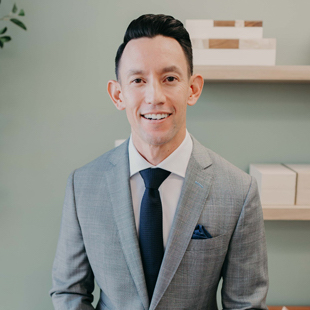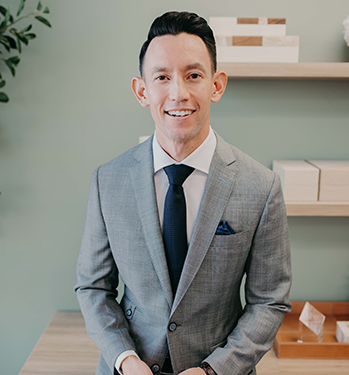Trust or Bust? 8 Biggest Estate Planning Mistakes

8 Biggest Estate Planning Mistakes
Not all estate plans are created equal. Here are the 8 biggest estate planning mistakes as identified by a recent article on CNBC.com.
I often see these mistakes from clients who attempted to draft their own trust or used a legal preparation company (We The People or LegalZoom.com). However, I have found that some of these 8 biggest estate planning mistakes are even found in attorney-prepared estate plans. Be sure that if you use an attorney to prepare your estate plan (and you should), the attorney specializes in estate planning.
Sometimes these eight common estate planning mistakes are due to a failure of following through on estate planning instructions or updating your estate plan as discussed below.
1. Thinking your state will handle everything.
“I don’t have very much money. Won’t all of my money just go to my children?” The simple answer is “it depends.” However, even if it does, do you want your children to receive everything at 18 years old? Do you remember how responsible you were at 18? Even if you are comfortable with that, your child will likely have to hire an attorney to go through a lengthy and costly probate process. So contrary to what you may believe, estate planning is not just for the rich and wealthy. It is for anyone with assets.
2. Thinking your work is done after creating a trust.
Creating a trust is much like buying a crock-pot. If you don’t put anything in the trust/crock-pot it is useless. Once a trust is established, the Orange Estate Planning Attorneys at Modern Wealth Law will assist you with funding your trust (putting the ingredients into the crock-pot to make a pot roast). You may overlook this very important aspect if you prepared your own trust or you went to a legal preparation company.
As an Orange County Estate Planning Lawyer, I also prepare a “pour over” will which is designed to be a catch-all for those assets (ingredients) that never get into the trust (crock-pot).
Contrary to the CNBC article, a pour-over will does not avoid probate. Assets not funded in your trust will have to be probated or go through some other court supervised transfer.
3. Setting it and forgetting it.
I recommend that you review your trust, and more importantly, your family dynamic every couple of years. Any time there is a marriage, divorce, birth or death, you need to consider how that affects your estate plan.
Many times it may not be a life event, but instead, the financial dynamic of certain beneficiaries change. Over time, some beneficiaries may require more financial assistance than others.
Does your current estate plan provide adequately for these changes?
4. Thinking all your assets will follow your will or trust.
Retirement accounts and insurance policies are governed by the beneficiary form you filled out when you opened the account or bought the policy. These assets do not flow through your trust or your will. But they can! If you name your trust as a beneficiary, and your trust is structured properly (again, the need for an attorney specializing in estate planning), your retirement assets will pass pursuant to the terms of your trust.
5. Relying on the “DIY” trust.
Unfortunately, “DIY” trusts can cause more harm than good. There are many problems with drafting your own Will or Trust. They are usually unclear, contrary to state law, and wind up in litigation. So while you saved a few thousand dollars today, it’ll cost your estate several more down the road.
6. Giving too much too soon.
This is probably one of the more controversial “mistakes” in my opinion. My goal as an estate planning attorney is to walk you through the options you have, discuss the pros and cons of each option, and allow you to make the final decision. You may decide you want to give your child everything at 21 after we discuss the pros and cons. You may decide you want to keep your assets in trust for your child’s entire life. Neither decision is wrong. Much of it is dependent upon your cultural beliefs, and your beliefs on raising children. Those decisions are not “mistakes.” My goal as your Irvine Estate Planning Attorney is to help you get to the decision that is right for you.
7. Not considering the needs of your children.
Most “cookie-cutter” trusts don’t provide adequately for children that require special attention. This may be because your child has special needs (special needs trust to preserve benefits), it may be because your child has certain issues with addiction, etc.
I often get asked, “don’t you just change the names on the trust, and then you’re done?” Just like no two families are alike, no two estate plans are alike.
8. Choosing the wrong trustee.
The CNBC article suggests that a corporate trustee (Wells Fargo, etc.) may be the best solution, not your brother or sister. Again, it depends. Most of my clients do not choose a corporate fiduciary. Usually because of the cost and ever-changing rotation of trust officers at each institution. There are certain situations where I do highly recommend a corporate fiduciary though. If there is likely tension between children or sibilings, a corporate fiduciary may provide a much needed unbiased third-party.
If you are concerned that you may have made one or more of these eight biggest estate planning mistakes, contact John Wong, an Orange County Estate Planning Lawyer at Modern Wealth Law.

John Wong advises on all aspects of estate planning, probate, asset protection and trust administration. He believes that estate planning is about planning for life; while having protections in place should the unexpected occur.



